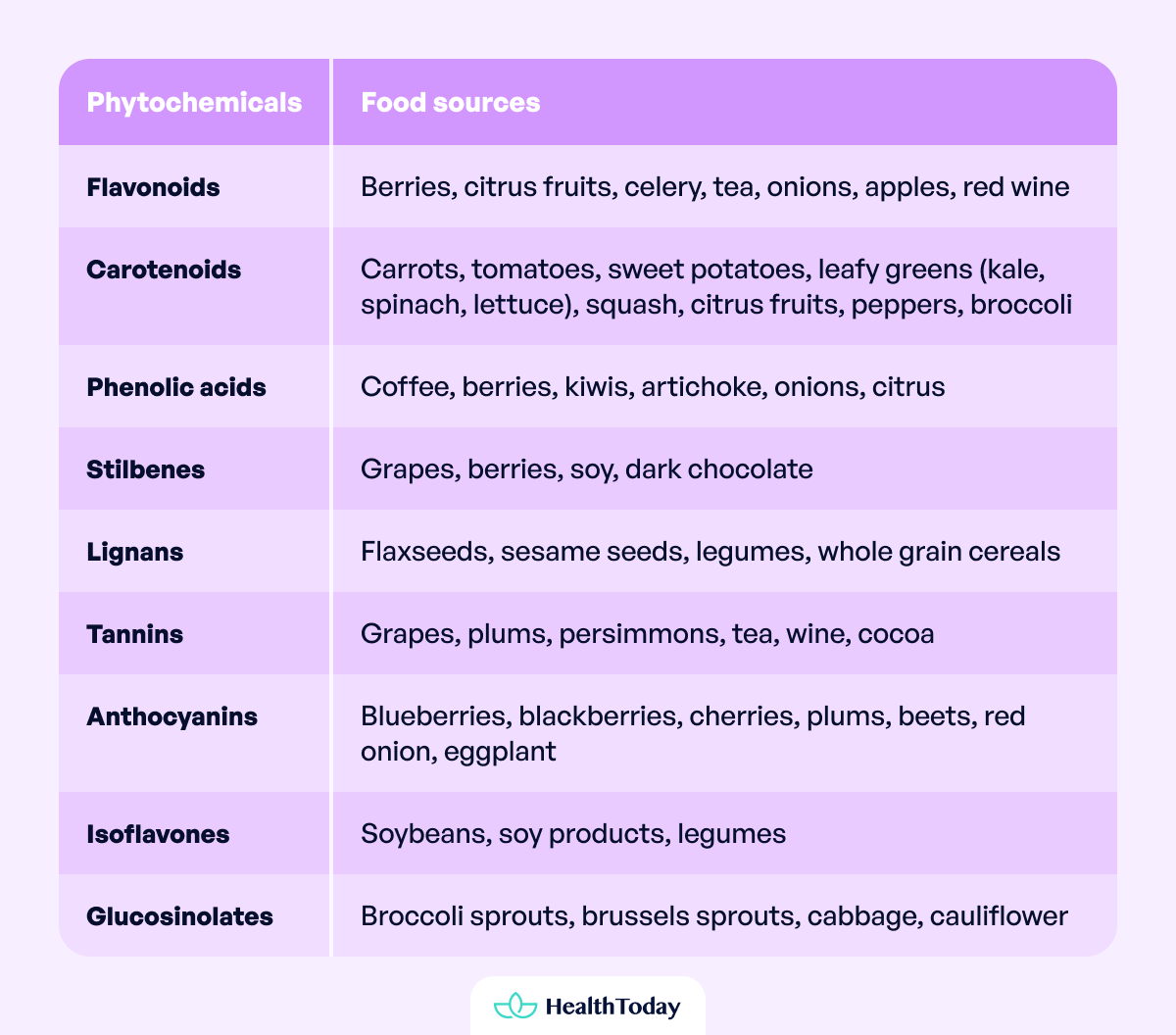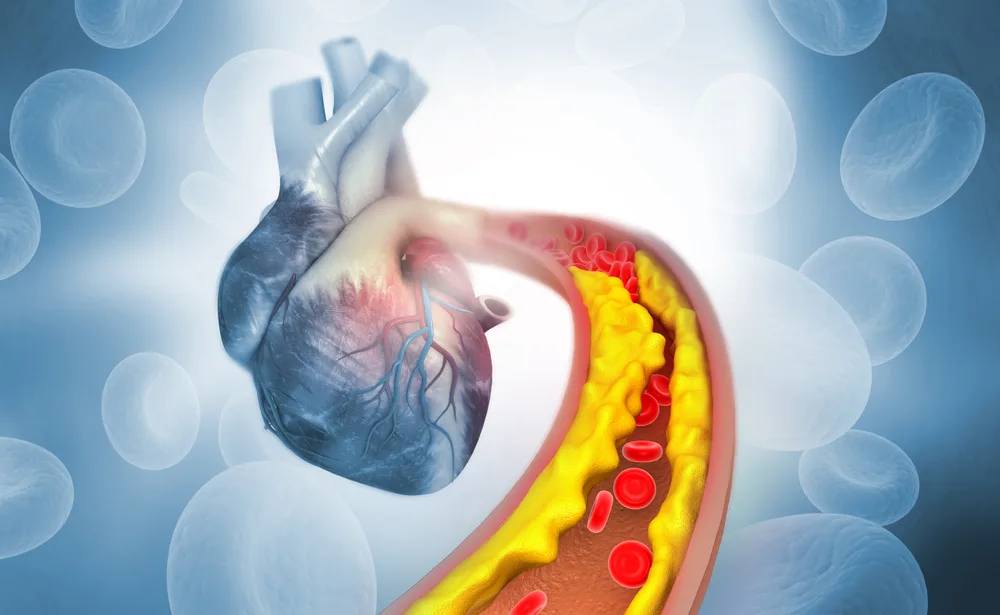Table of Contents
Interest in plant-based diets has increased in recent years due to their potential health benefits. Beyond demonstrating a positive impact on weight management and heart health, emerging research suggests that plant-based diets may help reduce oxidative stress. This process is linked to aging, cancer, chronic diseases, and cellular damage (1, 2).
In this article, we’ll get into the science behind plant-based diets and their ability to combat oxidative stress. Let’s explore this in detail!
Plant-based diets and free radicals: How does it work?
Before diving into how a plant-based diet helps your body fight free radicals, let’s define them and explain how they function.
What are free radicals in the body, and what do they do?

Your body produces unstable molecules called free radicals as byproducts of energy creation in your cells. These are also formed when you’re exposed to sunlight, pollution, processed food, and cigarette smoke.
While they are typically perceived as bad actors, free radicals aren’t always harmful when their numbers are kept in check (2). In fact, they help your body by fighting off infections and facilitating cell communication (3).
The problem arises when there are too many free radicals around. That’s because they are unstable compounds, and they’re constantly looking to either donate or grab an extra electron to become stable. Essentially, they give or steal electrons from other molecules, including parts of cells like DNA or cell membranes, making them unstable.
This loss in the electron balance of compounds, known as oxidation, ultimately leads to cell damage. Consequently, the damage leads to cancer, inflammatory conditions such as arthritis, and diseases of the lungs, kidneys, and heart, just to name a few (2).
Your body produces antioxidants to protect against this destructive process. These act like defenders that can give an electron to free radicals without being harmed. Besides that, they can stop the chain reaction of damage to your cells.
What is oxidative stress and its connection to free radicals?

Imbalance between the production of free radicals and the antioxidants in your body creates a destructive metabolic condition referred to as oxidative stress. When there are more free radicals around than the antioxidants can handle, they start causing damage by oxidizing other compounds. This triggers a chain of events that can contribute to various diseases (4, 5).
For example, oxidative stress can harm your DNA, the genetic material in your cells, leading to mutations that increase the risk of conditions like cancer. It also affects proteins and lipids, disrupting their normal functions and contributing to diseases such as Alzheimer’s and Parkinson’s.
Additionally, free radicals can oxidize low-density lipoprotein cholesterol, making it more likely to build up in artery walls. This causes obstructions to blood flow, which increases the risk of heart attacks and strokes.
Similarly, when free radicals damage cells, the body responds by triggering inflammation as part of its natural healing process. However, when inflammation becomes chronic, it can lead to conditions such as arthritis, heart disease, and diabetes, which cause more oxidative stress.
In this way, high oxidative stress levels can start a chain reaction of health issues, creating a harmful cycle that’s hard to break.
What is a plant-based diet?
Imagine a vibrant rainbow on your plate; that’s what a plant-based diet looks like! It emphasizes whole, unprocessed plant foods rich in colors such as red tomatoes, green spinach, orange carrots, purple cabbage, and blueberries. Each color in a specific plant food comes from the various health-promoting compounds called phytonutrients. These offer protection from disease and numerous other health benefits (6).
Plant-based diets prioritize the intake of fruits, vegetables, whole grains, legumes, nuts, and seeds. These dietary patterns often either entirely exclude or significantly reduce the consumption of animal products like meat, dairy, and eggs. There are various plant-based diets, such as the Mediterranean, Dietary Approaches to Stop Hypertension (DASH), vegetarian, and vegan diets (7, 8, 9).

How does a plant-based diet reduce oxidative stress?
To reduce oxidative stress through diet, you must consume more antioxidants. These substances neutralize harmful free radicals, preventing oxidation before it starts (10). The more plants you include in your diet, the more antioxidants you will consume. Plant phytochemicals and nutrients also promote overall health by reducing inflammation and supporting the immune system.
Diets that prioritize plant foods, like the Mediterranean and DASH diets, which focus on plant-based foods, have been linked to lower levels of oxidative stress and inflammatory markers (1). On the other hand, Western-style diets high in processed and fast foods tend to increase oxidative stress and inflammation in the body.
A year-long study involving 965 people found that those who ate more fruits and vegetables reduced their inflammation and showed less cell damage from oxidative stress, even without losing weight (11). These findings suggest that adding more fruits and vegetables to your meals can improve your health, especially if you’re dealing with conditions like obesity, diabetes, or heart disease.
Let’s have a detailed look at some of the healthy components plant foods provide that can reduce free radicals:
- Antioxidants
Antioxidants, which are plentiful in plant-based foods, enhance your body’s ability to counteract free radicals and preserve cellular health. Some examples of plant-based antioxidants include vitamin C, vitamin E, carotenoids, and flavonoids (12).
You can find powerful antioxidants in these common plant sources:


- Phytochemicals
In addition to those antioxidants, plants contain high levels of phytochemicals, compounds that have various health benefits, including antioxidant activity (13).
Phytochemicals can also trap iron, copper, and other metal ions that often cause the release of free radicals. These natural plant chemicals can bind to and remove them, further reducing the potential for free radical damage. Besides that, phytochemicals have been shown to reduce your risk of many different health conditions (14).
Note that even though they function similarly, not every antioxidant is a phytochemical, and not every phytochemical acts as an antioxidant.
Some of the plant sources of phytochemicals are as follows (15, 16):


- Reduced intake of pro-oxidants
A plant-based diet also helps minimize the exposure to pro-oxidative compounds present in animal products.
For instance, cooking processed and red meats at high temperatures, like frying, grilling, and barbecuing, leads to the formation of heterocyclic amines (HCAs) and advanced glycation end products (AGEs) (17).
High levels of AGEs are also found in processed meat and other highly processed food items, as well as products containing corn syrup, like soft drinks and ice cream. On the other hand, food prepared from scratch has been found to have lower levels of these damaging compounds (18).
Increased consumption of HCAs and AGEs raises oxidative stress levels through different mechanisms (18, 19). HCAs oxidize lipids and proteins during metabolism, while AGEs stimulate the production of harmful free radicals through interactions with cell receptors. Moreover, animal products are high in saturated fats, which can form lipid peroxides (20).
Consuming foods with high levels of HCAs and AGEs increases the free radical burden on your body. These compounds either directly generate free radicals through oxidation reactions or reduce your body’s antioxidant defenses in their attempts to neutralize them.
With more free radicals circulating and fewer antioxidants to keep them in check, this pro-oxidant state sets the stage for oxidative damage. This damage can occur either directly or indirectly causing and contributing to disease.
However, eating plant foods can reduce this burden. In a study on how AGEs affect body weight, researchers found that a low-fat plant-based diet reduced AGE formation by 79 percent after 16 weeks. In comparison, the group consuming meat and dairy products saw only a 15 percent reduction over the same period (21).
4. Anti-inflammatory effects
Chronic inflammation is a recognized factor in oxidative stress.However, along with their other benefits, plant foods also have anti-inflammatory effects. Since inflammation triggers the formation of free radicals, reducing it protects your body from their harmful consequences.
Polyphenols, flavonoids, and omega-3 fatty acids are just a few of the compounds found in plants that have been shown to reduce inflammation and oxidative stress (22, 23), significantly lowering disease risk. Research has also demonstrated that plant-rich anti-inflammatory diets decrease the risks of Alzheimer’s disease and dementia, cardiovascular disease (including heart attack and stroke), cancer, and others (24, 25, 26, 27).
5. Increased fiber and improved gut health
Plants are high in fiber, which helps maintain healthy gut microbiota, the beneficial bacteria that live in your intestinal tract. When you consume fiber, it is broken down by these bacteria for sustenance through a process called fermentation.
The healthy bacteria then produce short-chain fatty acids, which have many beneficial roles, such as regulating appetite and blood glucose levels, reducing inflammation, and protecting your cells from damage. They also play a significant role in preventing chronic diseases and cancer (28, 29).
By supporting a healthy gut environment, plant-rich diets strengthen immunity (30). Your gut contains trillions of beneficial bacteria that act as a first line of defense, helping to keep harmful invaders out of the digestive tract.
These helpful bacteria also train your immune system to recognize and fight off threats more effectively. A strong immune system also helps keep inflammation in check, which means fewer free radicals are produced.
What causes free radicals in the body?
In addition to the body’s natural metabolic processes, several factors influence the body’s production of free radicals:


Genetic susceptibility
Genetic variations can impact a person’s ability to neutralize free radicals.
Essentially, your genes contain instructions for building the proteins your body uses to function. The cells form special molecules called enzymes such as glutathione peroxidase, catalase, and superoxide dismutase. Then, these help clean up free radicals.
Sometimes, genetic variations in the cell’s instructions, like typos, can make these scavenger enzymes less effective. When this occurs, the body struggles to remove free radicals, causing them to build up and lead to oxidative cell damage (31).
Furthermore, mutations in genes that affect the function of your mitochondria can lead to increased free radical production. This is seen in conditions like the syndrome of mitochondrial encephalomyopathy, lactic acidosis, and stroke-like episodes (MELAS). MELAS is a disease that affects the brain, muscles, and other parts of the body (32).
Think of it this way: everyone is affected by factors that increase free radicals and oxidative stress. However, some people are more prone to these processes because of their genetic composition. They either produce fewer scavengers or make more free radicals. Either way, they will be more impacted by oxidative stress.
Environmental factors
Exposure to environmental toxins and pollutants also increases free radical formation within the body. Major contributors are air pollutants, including particulate matter, nitrogen oxides, and ozone.
For instance, exposure to diesel exhaust was shown to lower a crucial antioxidant ratio in the blood, reduce glutathione to oxidized glutathione, and increase levels of an inflammatory marker called interleukin-6 in the blood (33).
A study on the health effects of air pollution examined middle-aged Koreans living in cities. It explored how short-term exposure to pollutants like particulate matter, sulfur dioxide, nitrogen dioxide, carbon monoxide, and ozone affects inflammation and oxidative damage. The researchers found that higher levels of these pollutants were linked to increased levels of inflammatory markers in the blood and markers of oxidative DNA damage in urine (34).
Pesticides, such as organophosphates used in agriculture, and heavy metals like mercury, cadmium, and lead can enter the body and generate free radicals through different mechanisms (35, 36):
- Reduced antioxidant levels
- Mitochondrial dysfunction
- High levels of inflammation
Lifestyle factors
Certain lifestyle choices can also negatively impact your antioxidant status.
- Inflammatory diet: A diet low in antioxidants and high in saturated fats also gives rise to free radicals. When you eat excessive amounts of animal products and fried and processed foods, your body triggers inflammatory and other biochemical pathways, resulting in the overproduction of free radicals (37).
- Smoking: Tobacco smoke contains many oxidative compounds that reduce important antioxidant enzymes,like carbon monoxide, hydrogen cyanide, and ammonia, making it a major contributor to oxidative stress (38).
- Alcohol: Drinking alcohol was also shown to increase oxidative damage (39). When alcohol is metabolized, it creates highly reactive oxygen-containing molecules and reduces the levels of antioxidants that protect your cells, particularly in the brain and liver.
- Stress: When you have high levels of psychosocial stress, your brain releases stress hormones like cortisol (40). Increased levels of stress hormones disturb the immune and antioxidant defense systems.
- Sedentary lifestyle: Lack of physical activity is another reason for the production of free radicals (41, 42). When you’re inactive, your mitochondria become inefficient and leak free radicals. Besides that, a sedentary lifestyle can increase inflammation and reduce antioxidants in the body.
What causes oxidative stress?


As discussed earlier, genetic factors, environmental toxins, and lifestyle choices can all contribute to oxidative stress. However, mitochondrial dysfunction plays a key role in driving oxidative stress. Let’s see how:
Mitochondrial dysfunction
Mitochondria are the powerhouse of cells, producing energy for everything your body does. They create reactive oxygen molecules as a normal part of that process. They also have their own antioxidant defense systems to neutralize free radicals.
However, when their function is abnormal, they can overproduce free radicals, which escape and lead to increased oxidative stress (43, 44).
Here’s how mitochondrial malfunction creates oxidative stress:
- Increased free radical leakage: Damaged mitochondria become leaky, allowing more free radicals to escape into the cell.
- Decreased antioxidant production: In some cases, mitochondrial dysfunction can also disturb the production of natural antioxidants within the cell.
- Disrupted electron flow: The process of creating energy in mitochondria involves a flow of electrons. When this flow gets disrupted due to malfunction, it can lead to a surge of free radicals and oxidative stress.
Several factors can cause mitochondrial dysfunction, including (45, 46, 47):
- Exposure to environmental toxins
- Nutrient deficiencies, such as inadequate B vitamins, magnesium, and coenzyme Q10
- Physical inactivity
- Chronic stress
Some other factors causing oxidative stress are:
Insufficient antioxidant defense
Even with normal levels of free radicals, oxidative stress can occur if your body doesn’t have enough antioxidants around to neutralize them (48). Antioxidant deficiencies can result from:
- Poor dietary intake of antioxidant-rich foods (e.g., fruits, vegetables, whole grains)
- Nutrient absorption problems due to digestive disorders or aging
- Using up the supply of available antioxidants due to high oxidative stress levels from environmental exposures or increased consumption of pro-inflammatory foods (e.g., foods high in saturated fat, sugar, and salt, highly processed and refined foods, red and processed meat, omega-6 oils, artificial sweeteners, food additives)
Aging
As you age, your body’s ability to counteract free radicals and repair oxidative damage decreases, which results in high oxidative stress levels (49).
Impacts of free radicals on the body
Now, let’s see how high levels of free radicals and oxidative stress result in different health conditions.
The following are some negative impacts of free radicals on the body:


Hormonal regulation
Free radicals can lead to disturbances in hormonal balance, which causes several health problems. For instance, excessive free radical production can negatively affect the thyroid gland, which controls growth and development.
Increased oxidative stress can result in thyroid damage, which may lead to hyperthyroidism (overactive thyroid), hypothyroidism (underactive thyroid), or even thyroid cancer (50).
Similarly, higher oxidative stress disturbs the function of insulin, one of the hormones that regulate your blood sugar levels (51). Imbalances in favor of free radicals can lead to insulin resistance. When your cells become less sensitive to insulin, your blood sugar levels will become elevated, which increases your risk of developing type 2 diabetes.
Neurologic function
Unlike other body cells, brain cells are especially vulnerable to oxidative damage. Oxidative stress can disrupt the production and function of neurotransmitters, which are the chemical messengers that brain cells use to communicate with each other. When this interaction breaks down, it can lead to problems with memory and behavior.
Chronic oxidative stress is believed to contribute significantly to the development of neurodegenerative diseases like Alzheimer’s disease and age-related cognitive decline (52, 53).
The overproduction of free radicals can impair neuroplasticity, which is the brain’s ability to reorganize and adapt by forming new neural connections throughout life. Damage by free radicals can interfere with this process, potentially affecting learning, memory, and cognitive abilities (54, 55).
Gut health
Oxidative stress can also disrupt the gut microbiome, resulting in inflammation and poor digestive health (56).
In fact, intestinal conditions such as Crohn’s disease develop as a result of inflammation (57). During inflammation, immune responses and inflammatory cells become active. These activated cells produce free radicals, which contribute to further inflammation and tissue damage.
The cycle continues: inflammation → free radicals → more inflammation → disease. This ongoing process worsens the condition and affects your body’s ability to counteract it, leading to disease progression.
Free radicals also cause lipid and protein peroxidation, which damages DNA. Ultimately, this contributes to inflammatory bowel disease and many other health conditions impacted by inflammation, such as diabetes, arthritis, coronary artery disease, high blood pressure, and other chronic and autoimmune conditions.
Aging
Free radicals are also a hallmark of the aging process. Damage to the DNA, cells, and proteins results in the external signs associated with aging, such as wrinkles, age spots, and the loss of elasticity in the skin. Apart from this, oxidative stress also results in age-related diseases like heart disease, cancer, and arthritis, along with changes in cognitive function (58).
Exposure to ultraviolet (UV) light can also accelerate aging. When exposed to UV light, your skin produces reactive oxygen species, which can harm cellular components.
UVB light interacts directly with DNA, leading to structural changes and lesions. Indirectly, UVA radiation generates free radicals, oxidizing DNA. The damage to your DNA contributes to premature aging, wrinkles, skin cancer, and skin-related diseases (59, 60).
Autoimmune disorders
Another negative effect of free radicals is that they trigger abnormal immune responses. As a result, your immune system starts attacking the body’s own cells, leading to autoimmune disorders.
Some examples of autoimmune diseases caused by oxidative stress include lupus, rheumatoid arthritis, and multiple sclerosis (61, 62, 63).
Fertility
Free radicals can also damage DNA in reproductive cells, the sperm and eggs, causing fertility problems. Research shows that oxidative stress decreases sperm and egg quality and increases the risk of miscarriage (64, 65, 66). Moreover, high oxidative stress can also disturb the functioning of reproductive hormones, causing fertility issues (67).
Sleep
While research is still ongoing, some studies suggest a potential link between oxidative stress and sleep disturbances (68). Free radicals may interfere with the regulation of sleep-wake cycles. Therefore, you may experience difficulty sleeping and develop conditions like insomnia or sleep apnea (69, 70).
Cardiovascular
A rise in oxidative stress due to free radicals also damages the inner lining of blood vessels. Cholesterol and other components collect in those areas, causing plaque formation, which can build up and obstruct blood flow. This results in atherosclerosis, which leads to heart attacks and strokes, hypertension, and other cardiovascular diseases (71, 72).
Metabolic disorders
Free radicals could also be a reason for various metabolic diseases such as obesity and metabolic syndrome. Studies have shown that oxidative stress promotes insulin resistance, disturbs glucose and lipid metabolism, and leads to diseases like non-alcoholic fatty liver disease (73, 74, 75).
In summary, free radicals can have countless detrimental effects on the body and its processes. A balance between free radicals and antioxidants is necessary for health by preventing oxidative stress and its associated disorders.




New findings on how to fight free radicals
As you know, diet and lifestyle choices play a crucial role in fighting free radicals and reducing oxidative stress.
Diets rich in fruits and vegetables, such as the DASH and Mediterranean diets, have been shown to reduce oxidative stress markers and promote overall health (76).
A 2024 systematic review found that consuming colorful fruits and vegetables high in anthocyanins (pigments found in plants like berries, grapes, and red cabbage) and other beneficial plant compounds (nutraceuticals) can reduce free radicals and enhance antioxidant activity to promote health (77).
One example is the intake of blueberries, known for their high antioxidant content, has been shown to be linked to reduced oxidative cell damage (78). The World Health Organization recommends consuming at least 400 g or five servings of fruits and vegetables daily, excluding starchy roots like potatoes and sweet potatoes, to maintain overall health (79).
Besides diet, certain antioxidant supplements that target mitochondria can also be used to reduce free radicals. Research suggests that the short-term intake of 200 mg/day of coenzyme Q10 (CoQ10), a powerful antioxidant, lowers oxidative stress markers and increases antioxidant capacity after strenuous exercise (80).
Similarly, resveratrol is a polyphenol that activates the SIRT1 gene, which enhances mitochondrial function and reduces oxidative stress. Resveratrol supplementation (1,000 mg/day) for a six-month period was shown to be effective in improving antioxidant status in older people with type 2 diabetes (81). However, further research is needed to evaluate how well supplements work in achieving this.
Additionally, lifestyle habits also contribute to free radical production and oxidative stress. A study analyzed the impact of sedentary behavior on oxidative stress in Mexican women aged 40 to 69 over two years (82). The researchers assessed markers such as plasma malondialdehyde, antioxidants, and enzymes linked to oxidative stress. Sedentary behavior was defined as less than 30 minutes of daily physical activity.
The findings revealed higher levels of oxidative stress among sedentary women, particularly in older age groups, highlighting age as a contributing factor. These results show the importance of physical activity in mitigating oxidative stress as women grow older.
Another systematic review indicated that dietary and physical health improvements can enhance the activity of antioxidant enzymes and reduce harmful compounds in people with chronic diseases (83). That’s why, alongside a plant-rich diet, incorporating activities like sports, walking, or other exercises into your daily routine might be beneficial.
Similarly, research findings suggest that excessive alcohol intake negatively impacts oxidative status. In fact, ethanol consumption leads to increased lipid peroxidation and decreased antioxidant defenses (84).
A healthy gut also helps improve oxidative stress levels in your body. Researchers are studying how specific probiotic strains might boost the production of beneficial antioxidants in the gut, potentially reducing free radical damage. This could help prevent the development of chronic diseases related to oxidative stress (85, 86). Probiotics also can improve the activity of the antioxidant superoxide dismutase, an enzyme that fights harmful superoxide radicals and protects your cells.
Another emerging method for counteracting oxidative stress is hydrogen-rich water (HRW) consumption (87). This is simply water infused with hydrogen gas, and it is nontoxic. Its main action is directed at the mitochondria, where it helps balance electron flow and destroy harmful free radicals.
By doing so, HRW may safeguard our cells, tissues, and organs, thereby supporting overall health and possibly preventing a range of diseases. Although initial studies are promising, further research is needed to confirm these potential health benefits.




What are some diseases caused by free radicals?
Free radicals can lead to numerous disease conditions by injuring cells. Some diseases associated with free radical damage include:
– Neurodegenerative diseases
– Autoimmune diseases
– Heart and blood vessel disease
– Cataracts
– Cancer
Can you reverse free radicals?
Yes, free radicals can be neutralized by antioxidants. Antioxidants donate an electron to free radicals, so they don’t take electrons from healthy body cells. That is how they prevent cell damage. Eat foods rich in antioxidants to reduce your body’s burden of free radicals.
Does coffee remove free radicals?
Yes, coffee is rich in antioxidants like hydroxycinnamic acids and polyphenols that effectively neutralize free radicals and reduce oxidative stress. However, the results of studies are inconsistent due to variations in the types and doses of coffee consumed. More research is needed to clearly define its antioxidative properties (88, 89).
How long do free radicals stay in the body?
Free radicals have a very short lifespan, often lasting only a fraction of a second. However, they can cause significant damage to DNA and other cellular components during that brief time. The body has various mechanisms to quickly neutralize free radicals, but the damage they cause is ongoing and can accumulate over time.
Do free radicals cause aging?
Free radicals contribute to the aging process by causing cellular damage. Over time, this results in the signs and conditions of aging, such as gray hair and wrinkles, loss of skin elasticity, arthritis, cardiovascular disease, and dementia.
Summary
In summary, plant-based diets can play a significant role in reducing the body’s free radical burden. Key nutrients in plant foods, like antioxidants and polyphenols, have a powerful effect on oxidative stress by neutralizing harmful free radicals and preventing cell damage. Additionally, healthy lifestyle habits and keeping your gut healthy contribute to the maintenance of an oxidative balance.
Start by adding a variety of colorful plant foods to your meals, such as leafy greens, berries, and fruits. Reduce your consumption of packaged and highly processed foods, sugar, and animal fats, which do not contain these health-promoting nutraceuticals and contribute to oxidative stress and inflammation. By making simple changes to your diet and daily habits, you can support your body’s natural defenses against free radicals and promote your overall health.

















Comments
0